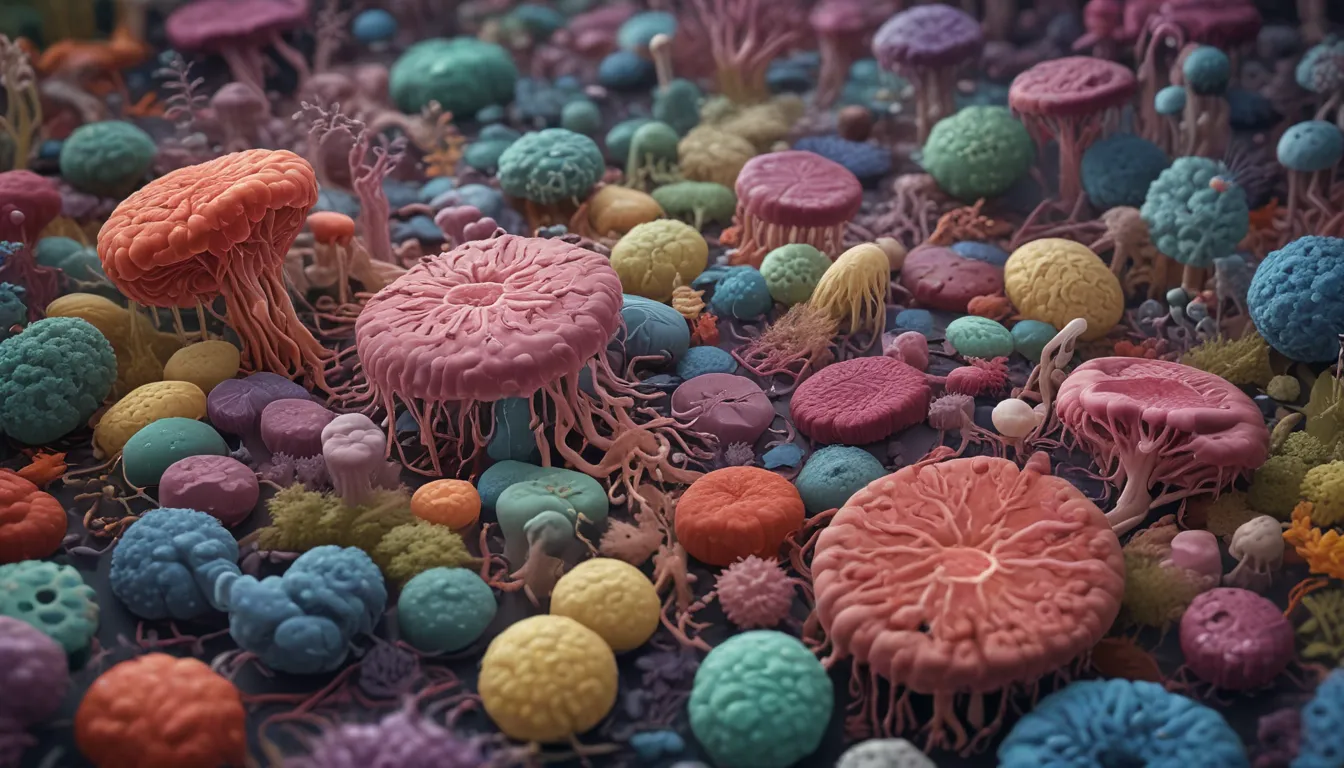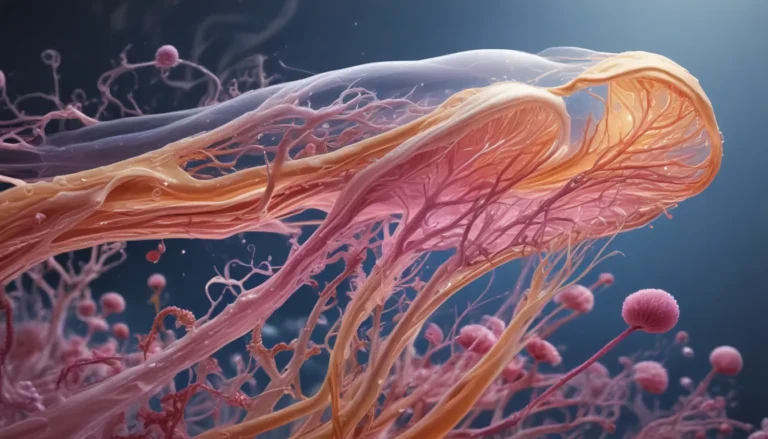A Note About Images: The images used in our articles are for illustration purposes only and may not exactly match the content. They are meant to engage readers, but the text should be relied upon for accurate information.
Welcome to a fascinating journey into the world of microbial diseases! From the common cold to life-threatening infections, these microscopic organisms have a significant impact on global health. In this article, we will unravel 12 intriguing facts about microbial diseases, shedding light on their history, transmission, impact on human health, and ongoing research efforts. Let’s delve into the captivating world of microorganisms and their effects on our bodies.
Key Takeaways:
- Microbial diseases affect millions worldwide, spreading through various means such as direct contact, contaminated food, and vectors like mosquitoes, emphasizing the importance of preventive measures and ongoing research in combating these threats to public health.
- Vaccines have played a crucial role in preventing the spread of microbial diseases, underscoring the significance of vaccination campaigns in eradicating diseases and reducing their incidence.
Microbial Diseases: A Global Challenge
Microbial diseases impact millions of people worldwide, ranging from common infections to severe illnesses. These diseases can spread through direct contact, contaminated food, water, or vectors like mosquitoes. As a result, preventive measures are essential to combat these widespread threats to public health.
Zoonotic Diseases: From Animals to Humans
Some microbial diseases, known as zoonotic diseases, can be transmitted from animals to humans. Examples include Ebola and COVID-19, highlighting the importance of monitoring and controlling diseases in animal populations to prevent future outbreaks.
Antibiotic Resistance: A Growing Concern
The overuse and misuse of antibiotics have led to the emergence of antibiotic-resistant strains of bacteria. This poses a significant challenge in effectively treating infections, emphasizing the need for responsible antibiotic use to combat microbial diseases.
Long-Term Health Effects of Microbial Diseases
Certain microbial diseases, such as tuberculosis, can cause chronic conditions that require ongoing treatment and care. This places a burden on healthcare systems and individuals affected by these diseases, underscoring the importance of early detection and treatment.
The Role of Vaccines in Preventing Microbial Diseases
Vaccines have been instrumental in preventing the spread of microbial diseases. Vaccination campaigns have successfully eradicated diseases like smallpox and significantly reduced the incidence of others, emphasizing the importance of vaccination in public health.
Sexual Transmission of Microbial Diseases
Sexually transmitted infections (STIs) caused by microbial pathogens, such as HIV/AIDS, gonorrhea, and syphilis, are a significant public health concern. Practicing safe sex and undergoing regular screenings are crucial in preventing the spread of these diseases.
The Benefits of Microbes
While some microbes cause diseases, many play essential roles in our bodies. Beneficial bacteria in our gut aid in digestion and boost our immune system, while certain fungi are used in producing antibiotics, highlighting the diverse functions of microbes.
Economic Impact of Disease Outbreaks
Outbreaks of microbial diseases can have a significant economic impact, disrupting economies, reducing productivity, and straining healthcare resources. The cost of treating and managing outbreaks can be substantial, emphasizing the importance of preparedness and response measures.
Emerging Infectious Diseases: Ongoing Challenges
New and evolving microbial diseases, such as Zika virus and SARS-CoV-2 (COVID-19), present ongoing challenges to global health. Monitoring, research, and international cooperation are crucial in managing and preventing such outbreaks, highlighting the dynamic nature of microbial diseases.
Historical Significance of Microbial Diseases
Throughout history, microbial diseases have shaped human populations and influenced cultural and scientific developments. Epidemics like the bubonic plague and the Spanish flu have left lasting imprints on societies, emphasizing the role of microbial diseases in human history.
Hygiene and Disease Prevention
Basic hygiene practices, including handwashing, proper sewage disposal, and access to clean water, are essential in preventing the transmission of microbial diseases. Lack of adequate facilities can lead to widespread outbreaks, underscoring the importance of sanitation measures.
Advances in Scientific Research
Scientists and researchers are continually studying microbial diseases to enhance our understanding, develop new treatments, and find innovative prevention strategies. This ongoing research is critical in combating persistent threats posed by microbial diseases.
In conclusion, microbial diseases present significant challenges to public health and require ongoing research and preventive measures to mitigate their impact. By understanding the complexities of microbial diseases and implementing appropriate strategies, we can protect individuals and communities from the effects of these microscopic organisms.
FAQs
-
What are microbial diseases?
Microbial diseases are illnesses caused by microorganisms such as bacteria, viruses, fungi, or parasites that invade the body and cause infections. -
How do microbial diseases spread?
Microbial diseases can spread through various means, including direct contact, contaminated surfaces, airborne pathogens, contaminated food or water, and insect or animal bites. -
What are some common examples of microbial diseases?
Common examples include the flu, tuberculosis, malaria, HIV/AIDS, and foodborne illnesses such as salmonella and E. coli infections. -
How can we prevent microbial diseases?
Prevention involves good hygiene practices, vaccination, maintaining clean environments, and following safe food handling practices to reduce the risk of infection. -
Are microbial diseases treatable?
Many microbial diseases are treatable with the appropriate medications, but the effectiveness of treatment depends on the specific disease and individual factors. -
Why is it important to study microbial diseases?
Studying microbial diseases is crucial for understanding how they spread, the mechanisms of illness, and developing effective treatments and preventive strategies to protect public health.
In conclusion, microbial diseases offer opportunities for innovation and discovery in the field of public health. By expanding our knowledge of these diseases and developing effective strategies to combat them, we can work towards a future where microbial diseases are better understood, controlled, and ultimately eliminated. Stay informed, stay safe, and explore the intriguing world of microbial diseases!






